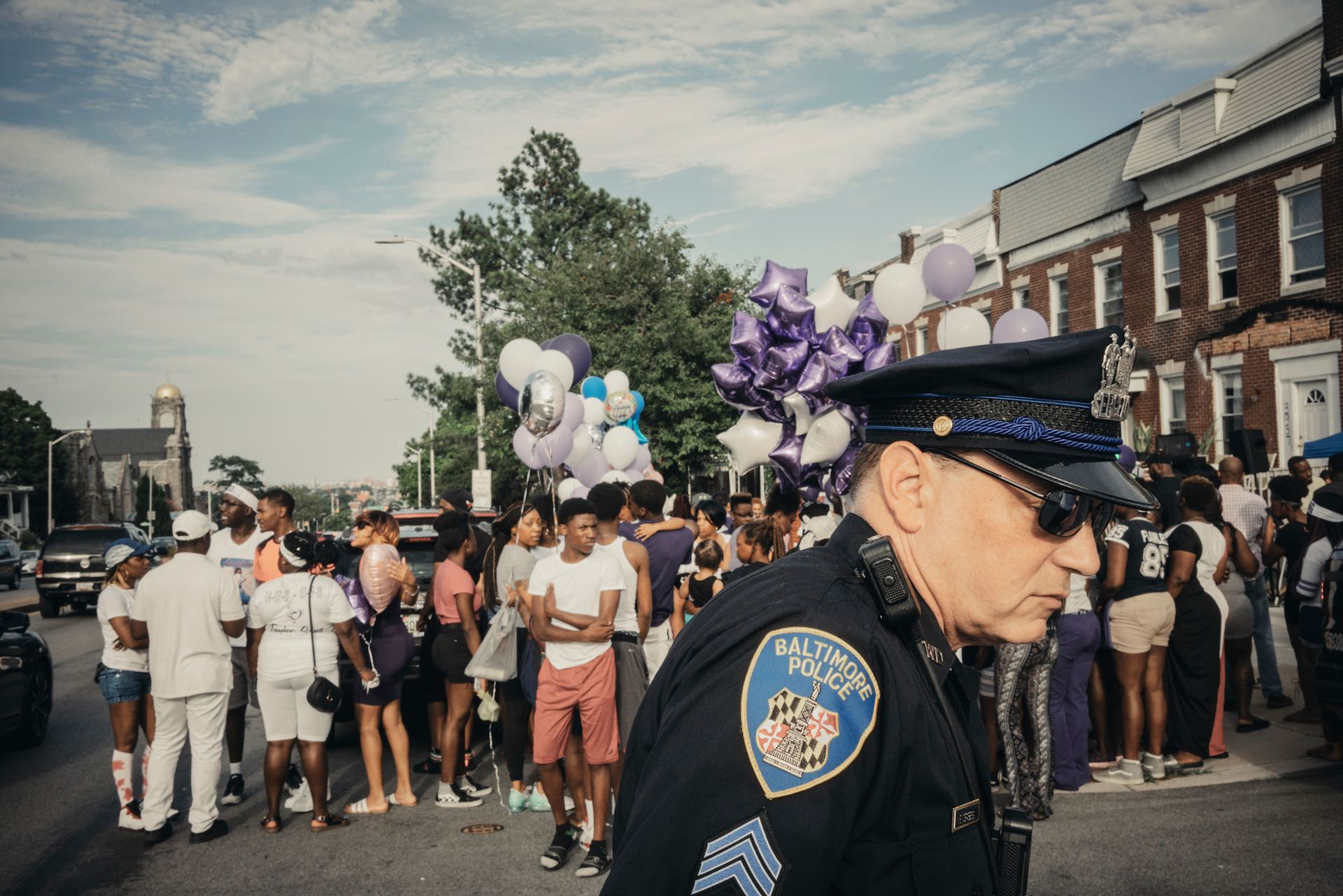Receive this daily news briefing by email every morning. Sign up here.
Gun violence requires a gun, but the way police departments have cracked down on illegal firearms can perpetuate racial disparities and erode community trust — without reducing shootings. A new study of Baltimore emphasizes the need for more targeted approaches, while community-led prevention groups are getting a financial boost in New York. Those stories and more in your end-of-week roundup.
WHAT TO KNOW TODAY
What community members want from police in one high-crime city. Scholars from the Johns Hopkins Center for Gun Policy and Research surveyed Baltimore residents living in neighborhoods scarred by shootings and analyzed law enforcement data in a new report prepared before the killing of George Floyd. Among their findings: Community members expressed wide concern about illegal gun carrying but believed street stops don’t target the individuals responsible for most violent crimes and were skeptical of police testimony in weapons cases. They want more oversight and transparency on gun arrests and prospections. The authors also concluded that the Baltimore Police Department’s broad emphasis on illegal gun arrests disproportionately targeted Black residents without reducing violence. What did decrease shootings? Deploying specialized detective units to crime hotspots, a strategy associated with a 13 percent reduction in fatal shootings and a 19 percent reduction in nonfatal shootings between 2004 and 2017.
Americans who bought their first guns because of COVID-19 or protest fears face higher suicide risks over the longterm. The researchers behind a recent landmark study of firearm suicides offered takeaways in a New York Times op-ed. They note that a lack of government data on gun owners makes it impossible to know how many first-time buyers are fueling the current gun sales boom. But what their study drives home is that a gun in the home creates lasting suicide danger: “While some people who die by gun suicide buy their weapons intending to kill themselves, that isn’t true for most who die this way — their deaths reflect the substantial and enduring risk posed by access to handguns.” If you are having thoughts of suicide, help is available 24 hours a day: Call the National Suicide Prevention Lifeline at 1-800-273-8255 or text 741741 to reach the Crisis Text Line.
To offset a police spending freeze, Philly’s top cop will cut overtime. In our Wednesday story about the movement to defund the police, J. Brian Charles wrote about Philadelphia Mayor Jim Kenney’s decision to scrap a planned $19 million increase to his police budget in response to activist pressure. Police Commissioner Danielle Outlaw said she’ll offset the squeeze by reducing overtime, which cost the city $61.6 million in fiscal year 2019. About 10 percent of the savings will go toward implicit-bias training, outfitting more cops with bodycams, and adding crime intel analysts.
Amid calls to defund police, NYC expands Cure Violence program. Mayor Bill de Blasio announced that he’s allocating $10 million to the city’s violence-intervention network, which deploys former gang members to mediate disputes and connect potential shooters with social services. The New York City chapter of Cure Violence got a $3.5 million bump between 2016 and 2017, Ann Givens reported at the time.
Louisville, Kentucky, advances a ban on no-knock warrants. The Louisville Metro Council unanimously approved “Breonna’s Law,” which prohibits police from entering a residence without notifying its occupants. The measure is named for Breonna Taylor, an EMT who was shot eight times and killed in March by officers conducting a no-knock raid during a search for a drug suspect who was already in custody. The proposal now goes to the mayor for final approval.
The Trump administration gives thumbs up to shooting Alaskan black bears and cubs in their dens. Hunters sometimes blind the animals with artificial light before killing them. Other practices permitted by the new National Park Service rules, which cover 20 million acres of national preserves, include shooting caribou from motorboats and hunting wolves and coyotes during the season when mothers rear their young. The Humane Society slammed the revival of the “extreme cruel killing methods,” which were banned during the Obama era. Go deeper: President Trump has prioritized the loosening of hunting rules on federal lands since he took office. His first interior secretary rescinded a ban on lead ammunition in national wildlife refuges on his first day in office.
Anti-violence advocate fatally shot in North Carolina. Oscar Steele, who organized a “Guns Down, Gloves Up” boxing program for kids in Charlotte, was killed last week. “Everything that he was trying to prevent, happened to him,” his mother said. “His legacy will be continued.” Police have arrested two suspects.
DATA POINT
Police departments now consume nearly 8 percent of big cities’ general expenditures, versus 5 percent for housing and 3 percent for parks, based on a dataset that factors in differences in municipal budgeting. — The New York Times

